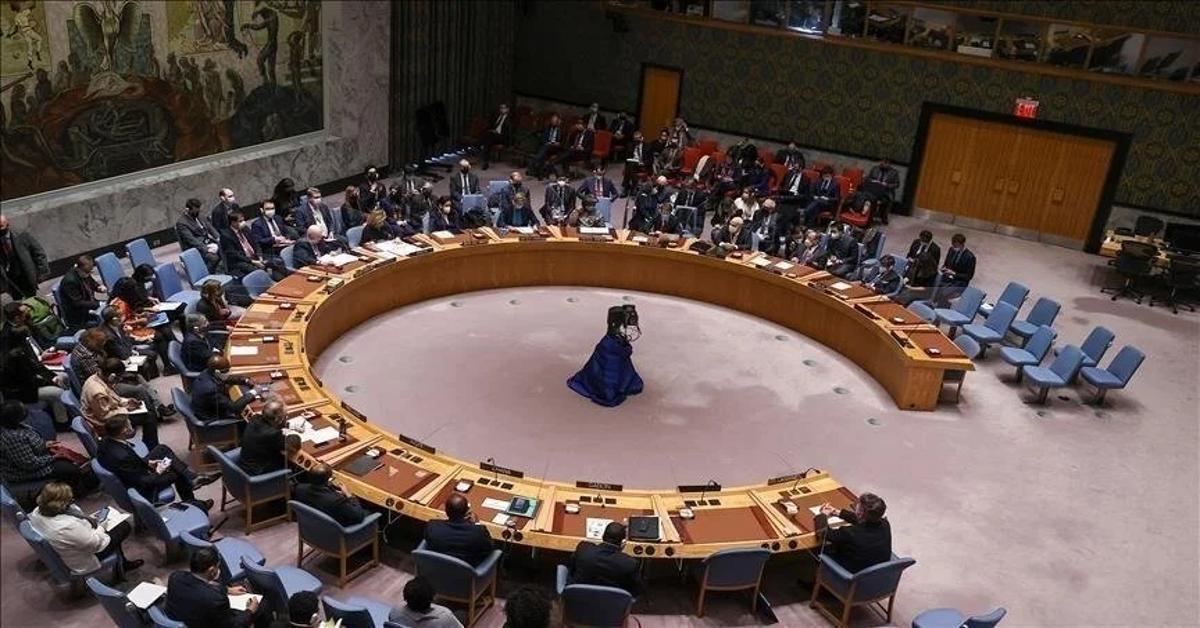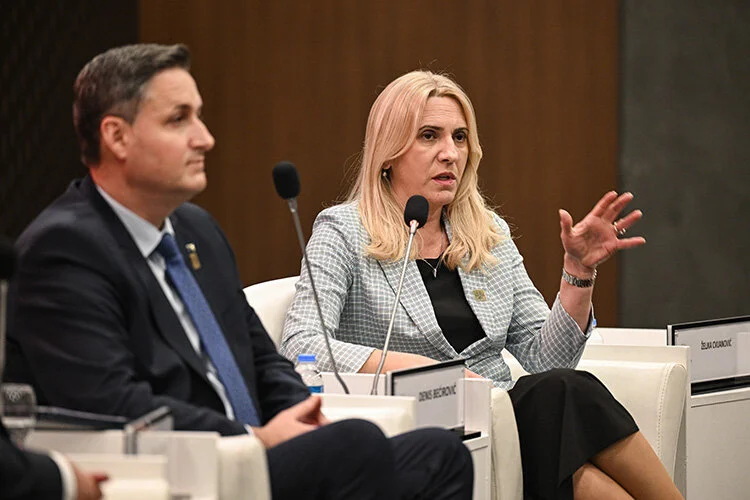
The UN Security Council holds a session to discuss Bosnia and Herzegovina following a request by Russia
The U.N. Security Council will discuss the situation in Bosnia and Herzegovina (BiH) at a session on Tuesday, the Council's website announced.

The extraordinary session was requested by Russia following a letter from Zeljka Cvijanovic, a Bosnian Serb member of the Trilateral Presidency of Bosnia and Herzegovina, to Russian Ambassador Vasil Nebenzia, in which she expressed her wish to brief the Security Council on the situation in Bosnia and Herzegovina.
In her letter, Cvijanovic emphasized the importance of the Dayton Agreement in determining the powers of government in BiH.
She expressed concerns about perceived deviations from the constitutional structure, which she attributed to foreign influence and certain political formations within BiH.
In addition, Cvijanovic accuses Christian Schmidt, the High Representative of the international community in BiH, saying that Schmidt was illegally appointed and violated domestic law.
Cvijanovic also demands the dismissal of Zlatko Lagumdzija, Ambassador of Bosnia and Herzegovina to the UN, for his assistance in the preparation and presentation of the resolution on Srebrenica.
The session is scheduled for Tuesday at 10:00 p.m. European time, and Zeljka Cvijanovic will address the Security Council via video link.
Bosnia and Herzegovina will be represented by Zlatko Lagumdzija, while High Representative Christian Schmidt is also likely to address the Council.
The draft resolution on the International Day of Commemoration and Remembrance of the Srebrenica Genocide, which will be voted on by the UN General Assembly in May, has drawn criticism from Republika Srpska, an entity of BiH, and Serbia.
The draft resolution condemns the denial of the Srebrenica genocide and the glorification of those responsible for the massacre of Bosniak civilians in July 1995.
Serbia is against the resolution arguing that it would impose collective guilt on the Serbian people.
Russia and China, as well as African and South American countries, are expected to play an important role in determining the fate of the resolution.
In 2015, Russia vetoed a resolution condemning the Srebrenica genocide proposed by the U.K. and supported by the U.S. and EU countries.
The International Court of Justice in The Hague characterized the Srebrenica massacre as genocide, attributed responsibility to the Republika Srpska army and held Serbia responsible for failing to prevent or punish the perpetrators.
More than 50 people have been sentenced to more than 700 years in prison by international and Bosnia and Herzegovina courts for their role in the genocide and crimes in Srebrenica.
Source: Newsroom